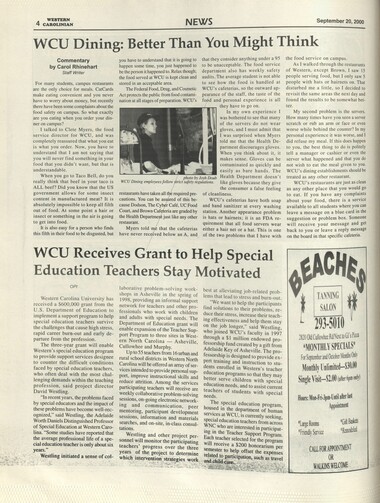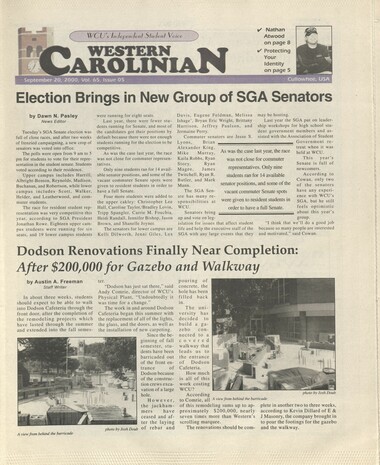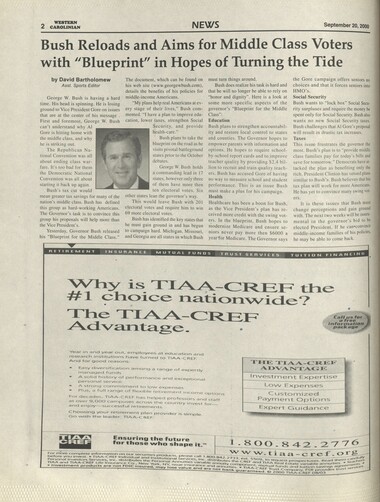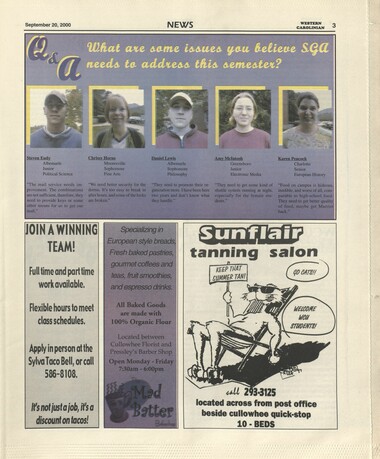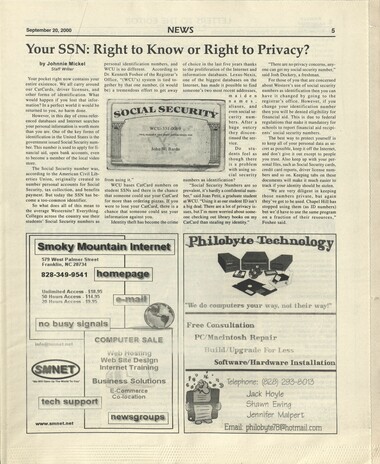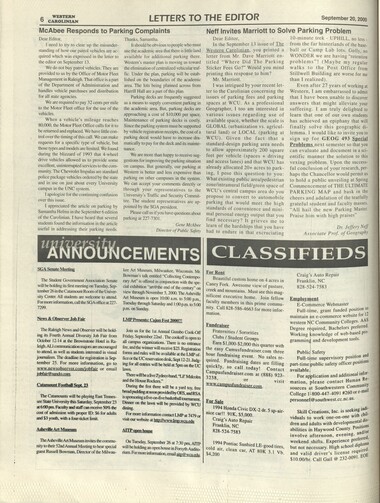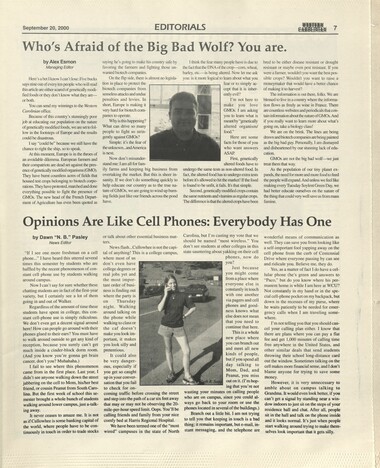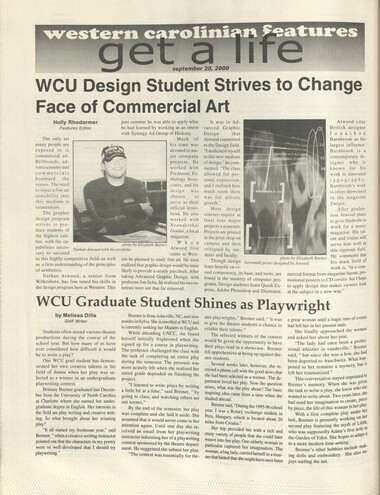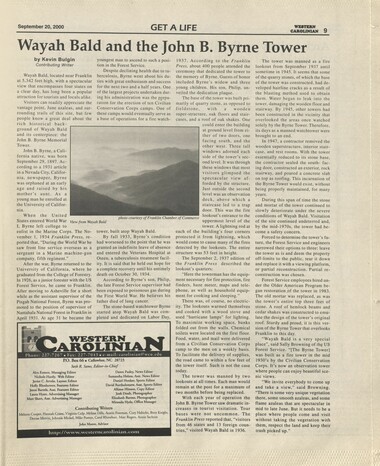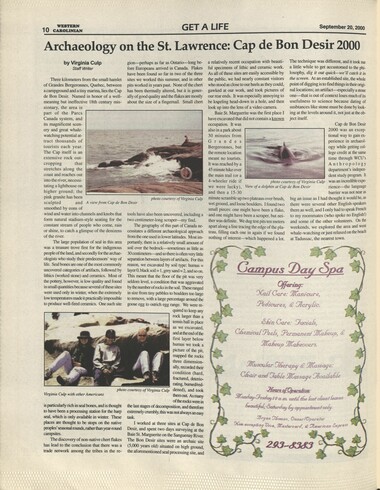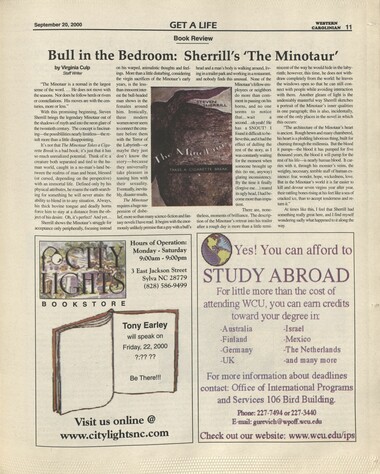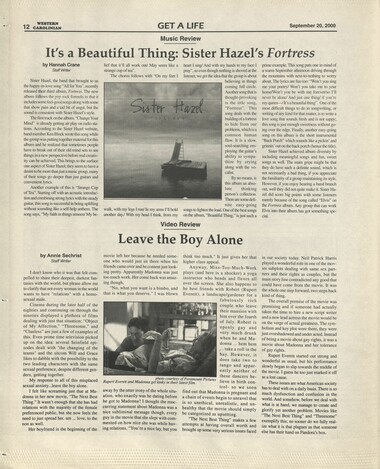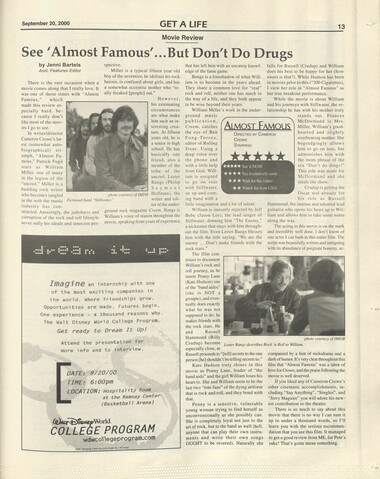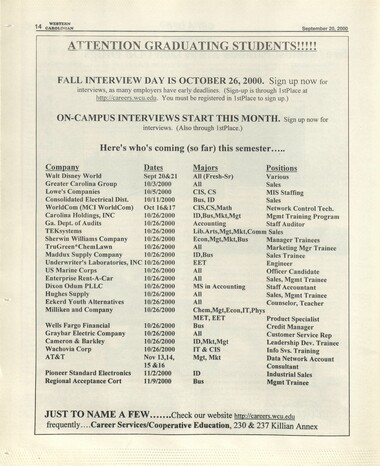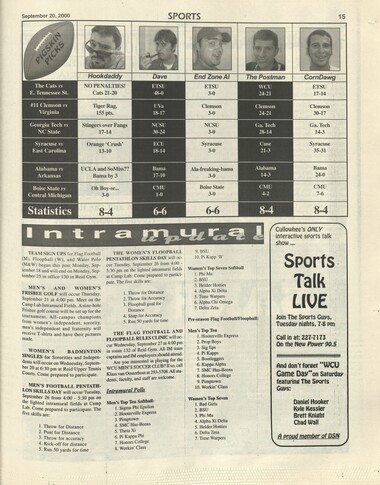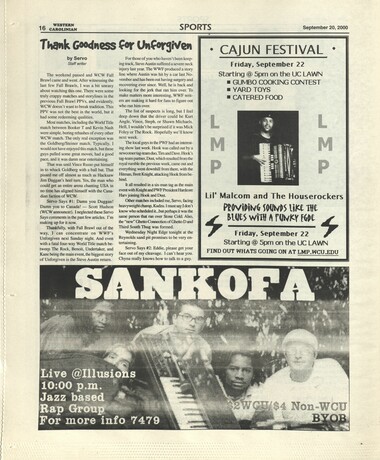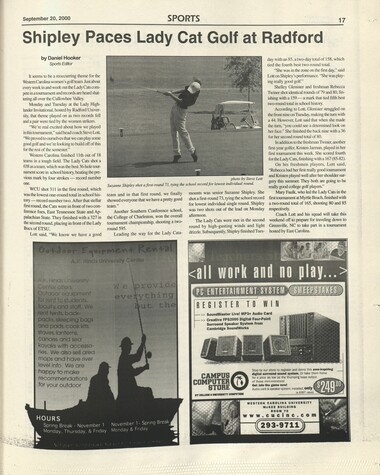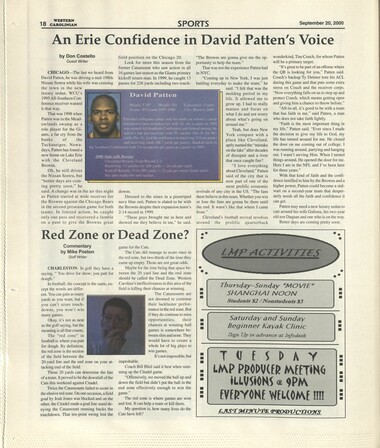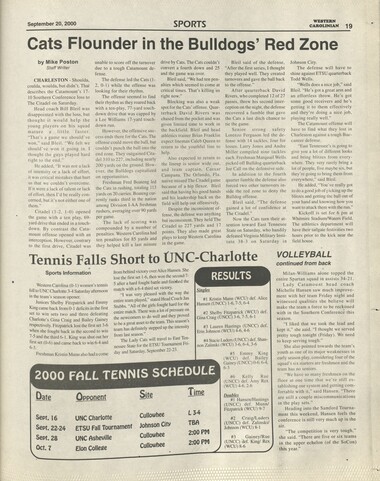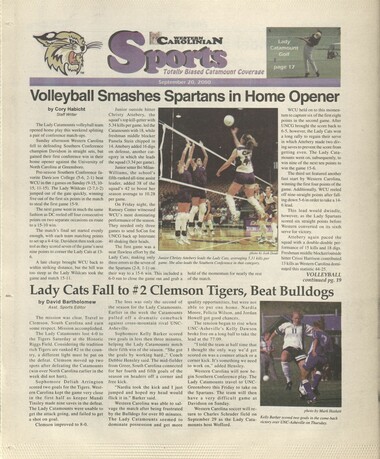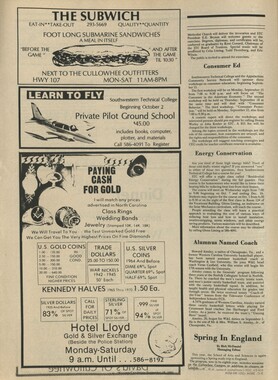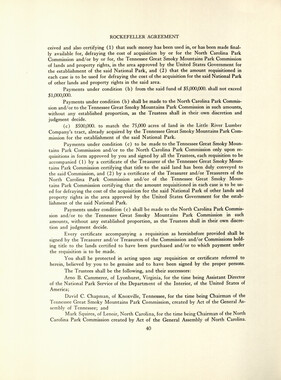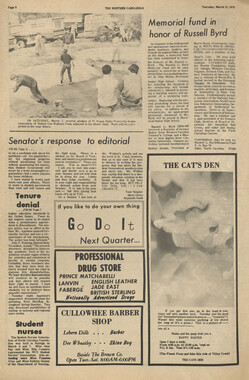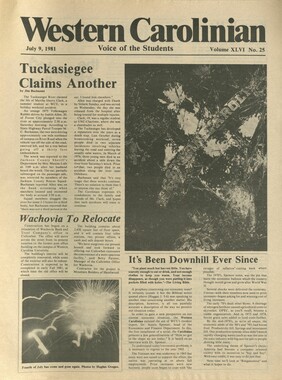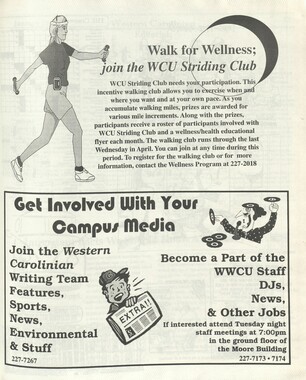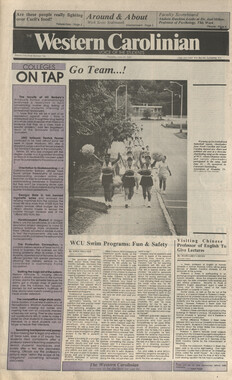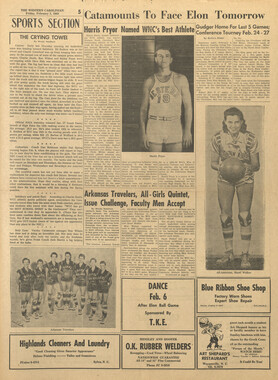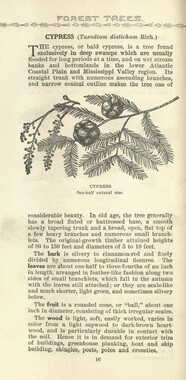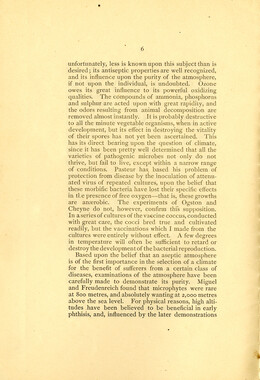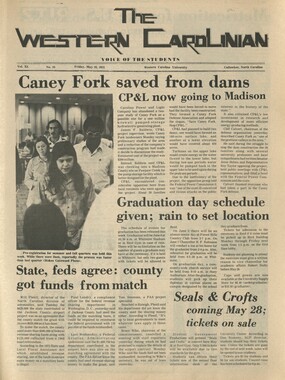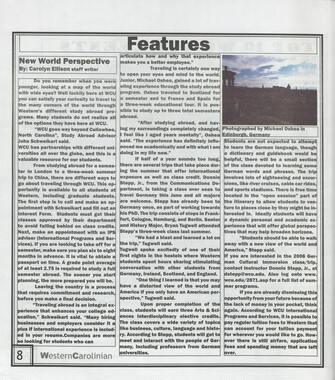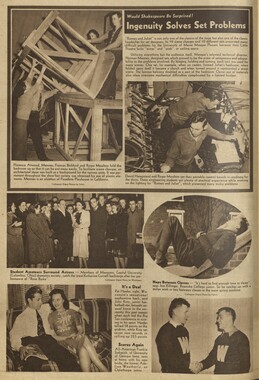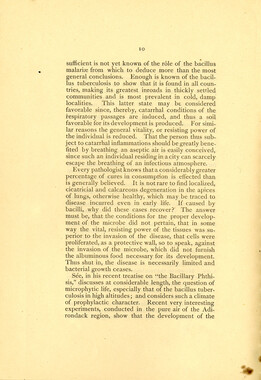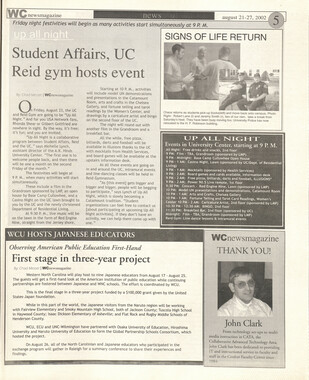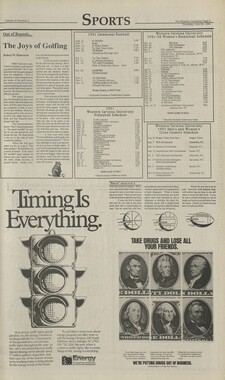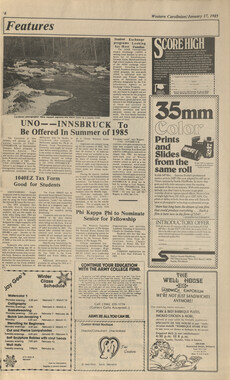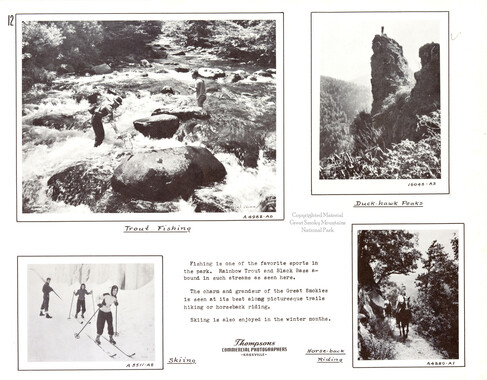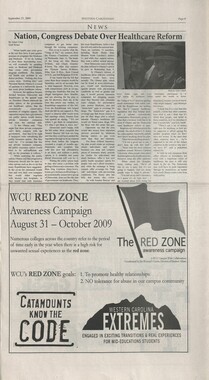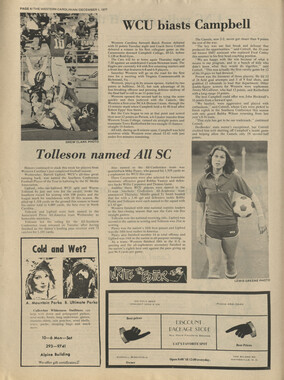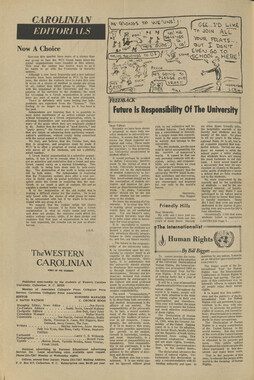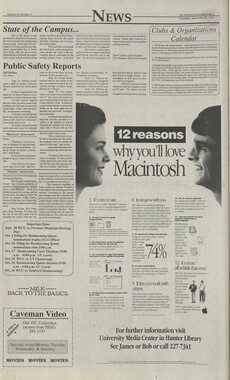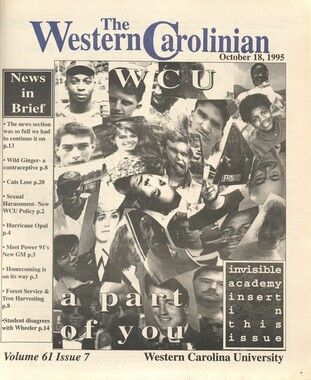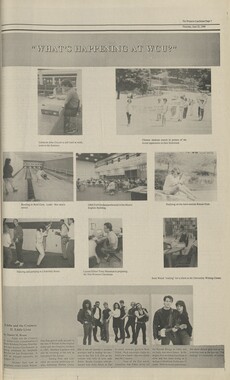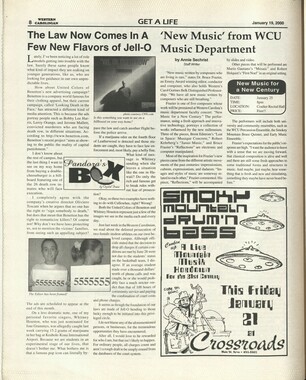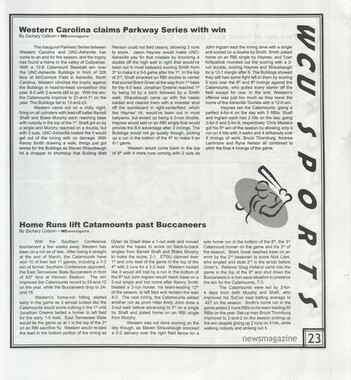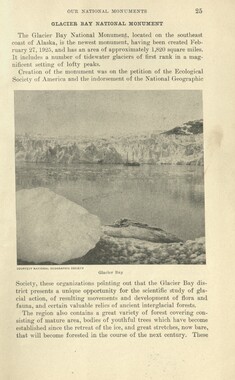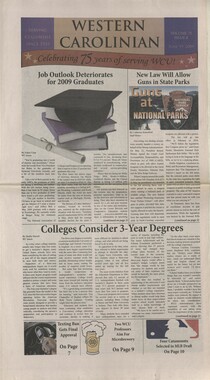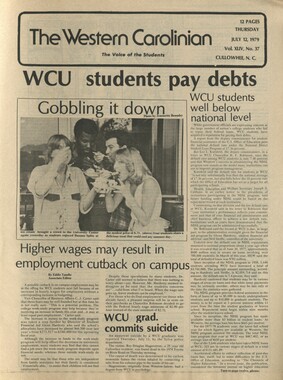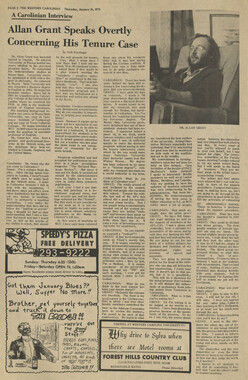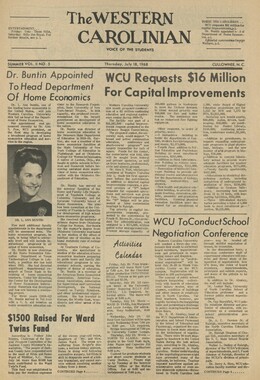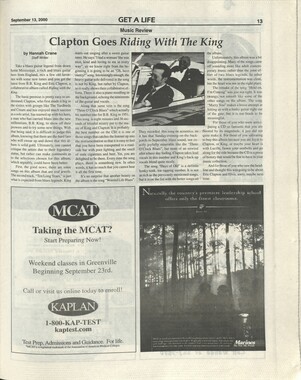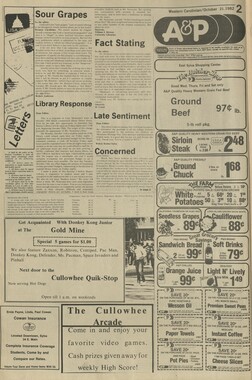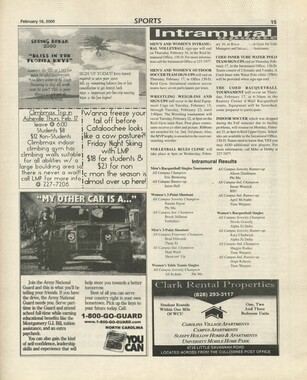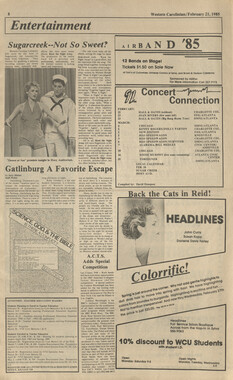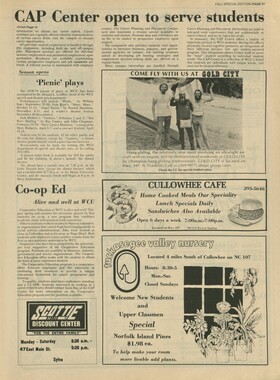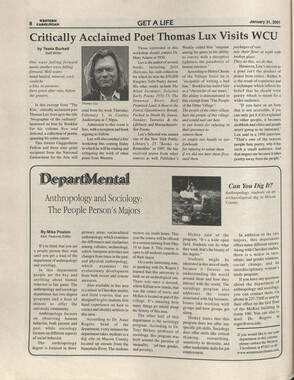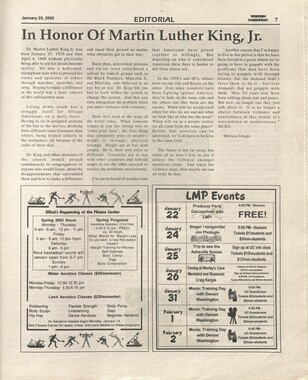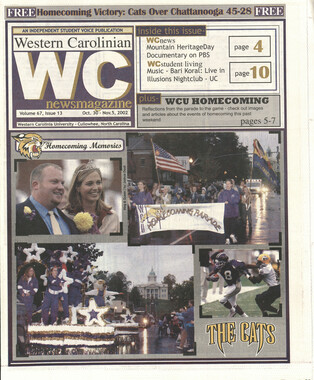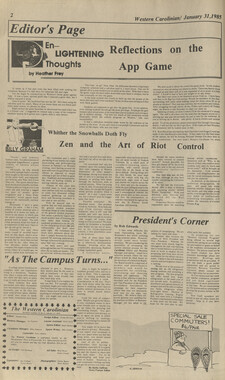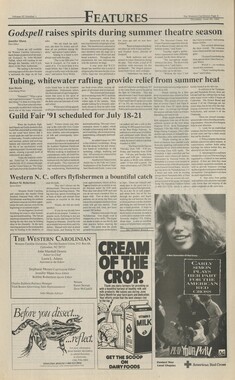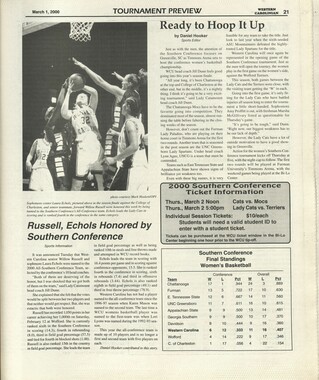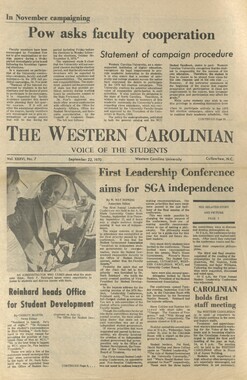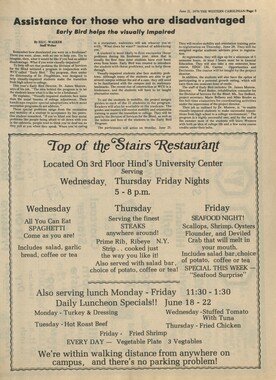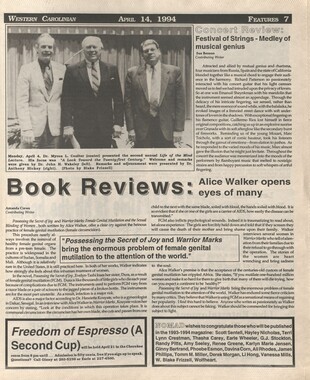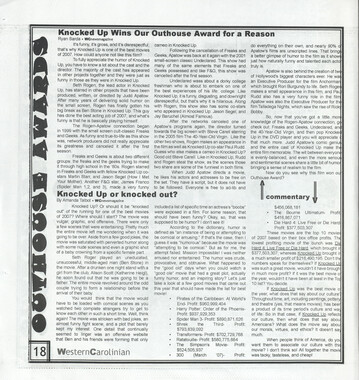Western Carolina University (21)
View all
- Canton Champion Fibre Company (2308)
- Cherokee Traditions (291)
- Civil War in Southern Appalachia (165)
- Craft Revival (1942)
- George Masa Collection (137)
- Great Smoky Mountains - A Park for America (3080)
- Highlights from Western Carolina University (422)
- Horace Kephart (973)
- Journeys Through Jackson (159)
- LGBTQIA+ Archive of Jackson County (89)
- Oral Histories of Western North Carolina (318)
- Picturing Appalachia (6617)
- Stories of Mountain Folk (413)
- Travel Western North Carolina (153)
- Western Carolina University Fine Art Museum Vitreograph Collection (129)
- Western Carolina University Herbarium (92)
- Western Carolina University: Making Memories (738)
- Western Carolina University Publications (2491)
- Western Carolina University Restricted Electronic Theses and Dissertations (146)
- Western North Carolina Regional Maps (71)
- World War II in Southern Appalachia (131)
University of North Carolina Asheville (6)
View all
- Allanstand Cottage Industries (62)
- Appalachian National Park Association (53)
- Bennett, Kelly, 1890-1974 (1463)
- Berry, Walter (76)
- Brasstown Carvers (40)
- Carver, George Washington, 1864?-1943 (26)
- Cathey, Joseph, 1803-1874 (1)
- Champion Fibre Company (233)
- Champion Paper and Fibre Company (297)
- Cherokee Indian Fair Association (16)
- Cherokee Language Program (22)
- Crowe, Amanda (40)
- Edmonston, Thomas Benton, 1842-1907 (7)
- Ensley, A. L. (Abraham Lincoln), 1865-1948 (275)
- Fromer, Irving Rhodes, 1913-1994 (70)
- George Butz (BFS 1907) (46)
- Goodrich, Frances Louisa (120)
- Grant, George Alexander, 1891-1964 (96)
- Heard, Marian Gladys (60)
- Kephart, Calvin, 1883-1969 (15)
- Kephart, Horace, 1862-1931 (313)
- Kephart, Laura, 1862-1954 (67)
- Laney, Gideon Thomas, 1889-1976 (439)
- Masa, George, 1881-1933 (61)
- McElhinney, William Julian, 1896-1953 (44)
- Niggli, Josephina, 1910-1983 (10)
- North Carolina Park Commission (105)
- Osborne, Kezia Stradley (9)
- Owens, Samuel Robert, 1918-1995 (11)
- Penland Weavers and Potters (36)
- Roberts, Vivienne (15)
- Roth, Albert, 1890-1974 (142)
- Schenck, Carl Alwin, 1868-1955 (1)
- Sherrill's Photography Studio (2565)
- Southern Highland Handicraft Guild (127)
- Southern Highlanders, Inc. (71)
- Stalcup, Jesse Bryson (46)
- Stearns, I. K. (213)
- Thompson, James Edward, 1880-1976 (226)
- United States. Indian Arts and Crafts Board (130)
- USFS (683)
- Vance, Zebulon Baird, 1830-1894 (1)
- Weaver, Zebulon, 1872-1948 (58)
- Western Carolina College (230)
- Western Carolina Teachers College (282)
- Western Carolina University (2008)
- Western Carolina University. Mountain Heritage Center (18)
- Whitman, Walt, 1819-1892 (10)
- Wilburn, Hiram Coleman, 1880-1967 (73)
- Williams, Isadora (3)
- Cain, Doreyl Ammons (0)
- Crittenden, Lorraine (0)
- Rhodes, Judy (0)
- Smith, Edward Clark (0)
- Appalachian Region, Southern (3032)
- Asheville (N.C.) (1945)
- Avery County (N.C.) (26)
- Blount County (Tenn.) (195)
- Buncombe County (N.C.) (1680)
- Cherokee County (N.C.) (283)
- Clay County (N.C.) (556)
- Graham County (N.C.) (238)
- Great Smoky Mountains National Park (N.C. and Tenn.) (525)
- Haywood County (N.C.) (3573)
- Henderson County (N.C.) (70)
- Jackson County (N.C.) (4925)
- Knox County (Tenn.) (35)
- Knoxville (Tenn.) (13)
- Lake Santeetlah (N.C.) (10)
- Macon County (N.C.) (421)
- Madison County (N.C.) (216)
- McDowell County (N.C.) (39)
- Mitchell County (N.C.) (135)
- Polk County (N.C.) (35)
- Qualla Boundary (982)
- Rutherford County (N.C.) (78)
- Swain County (N.C.) (2185)
- Transylvania County (N.C.) (270)
- Watauga County (N.C.) (12)
- Waynesville (N.C.) (86)
- Yancey County (N.C.) (72)
- Aerial Photographs (3)
- Aerial Views (60)
- Albums (books) (4)
- Articles (1)
- Artifacts (object Genre) (228)
- Bibliographies (1)
- Biography (general Genre) (2)
- Cards (information Artifacts) (38)
- Clippings (information Artifacts) (192)
- Copybooks (instructional Materials) (3)
- Crafts (art Genres) (622)
- Depictions (visual Works) (21)
- Design Drawings (1)
- Digital Moving Image Formats (2)
- Drawings (visual Works) (185)
- Envelopes (101)
- Exhibitions (events) (1)
- Facsimiles (reproductions) (1)
- Fiction (general Genre) (4)
- Financial Records (12)
- Fliers (printed Matter) (67)
- Glass Plate Negatives (381)
- Guidebooks (2)
- Internegatives (10)
- Interviews (823)
- Land Surveys (102)
- Letters (correspondence) (1045)
- Manuscripts (documents) (618)
- Maps (documents) (177)
- Memorandums (25)
- Minutes (administrative Records) (59)
- Negatives (photographs) (6090)
- Newsletters (1290)
- Newspapers (2)
- Notebooks (8)
- Occupation Currency (1)
- Paintings (visual Works) (1)
- Pen And Ink Drawings (1)
- Periodicals (194)
- Personal Narratives (10)
- Photographs (12977)
- Plans (maps) (1)
- Poetry (6)
- Portraits (4568)
- Postcards (329)
- Programs (documents) (181)
- Publications (documents) (2444)
- Questionnaires (65)
- Relief Prints (26)
- Sayings (literary Genre) (1)
- Scrapbooks (282)
- Sheet Music (2)
- Slides (photographs) (402)
- Songs (musical Compositions) (2)
- Sound Recordings (802)
- Specimens (92)
- Speeches (documents) (18)
- Tintypes (photographs) (8)
- Transcripts (329)
- Text Messages (0)
- A.L. Ensley Collection (275)
- Appalachian Industrial School Records (7)
- Appalachian National Park Association Records (336)
- Axley-Meroney Collection (2)
- Bayard Wootten Photograph Collection (20)
- Bethel Rural Community Organization Collection (7)
- Blumer Collection (5)
- C.W. Slagle Collection (20)
- Canton Area Historical Museum (2110)
- Carlos C. Campbell Collection (462)
- Cataloochee History Project (64)
- Cherokee Studies Collection (4)
- Daisy Dame Photograph Album (5)
- Daniel Boone VI Collection (1)
- Doris Ulmann Photograph Collection (112)
- Elizabeth H. Lasley Collection (1)
- Elizabeth Woolworth Szold Fleharty Collection (4)
- Frank Fry Collection (95)
- George Masa Collection (173)
- Gideon Laney Collection (452)
- Hazel Scarborough Collection (2)
- Hiram C. Wilburn Papers (28)
- Historic Photographs Collection (236)
- Horace Kephart Collection (861)
- Humbard Collection (33)
- Hunter and Weaver Families Collection (1)
- I. D. Blumenthal Collection (4)
- Isadora Williams Collection (4)
- Jesse Bryson Stalcup Collection (47)
- Jim Thompson Collection (224)
- John B. Battle Collection (7)
- John C. Campbell Folk School Records (80)
- John Parris Collection (6)
- Judaculla Rock project (2)
- Kelly Bennett Collection (1482)
- Love Family Papers (11)
- Major Wiley Parris Civil War Letters (3)
- Map Collection (12)
- McFee-Misemer Civil War Letters (34)
- Mountain Heritage Center Collection (4)
- Norburn - Robertson - Thomson Families Collection (44)
- Pauline Hood Collection (7)
- Pre-Guild Collection (2)
- Qualla Arts and Crafts Mutual Collection (12)
- R.A. Romanes Collection (681)
- Rosser H. Taylor Collection (1)
- Samuel Robert Owens Collection (94)
- Sara Madison Collection (144)
- Sherrill Studio Photo Collection (2558)
- Smoky Mountains Hiking Club Collection (616)
- Stories of Mountain Folk - Radio Programs (374)
- The Reporter, Western Carolina University (510)
- Venoy and Elizabeth Reed Collection (16)
- WCU Gender and Sexuality Oral History Project (36)
- WCU Mountain Heritage Center Oral Histories (25)
- WCU Oral History Collection - Mountain People, Mountain Lives (71)
- WCU Students Newspapers Collection (1923)
- Western North Carolina Tomorrow Black Oral History Project (69)
- William Williams Stringfield Collection (2)
- Zebulon Weaver Collection (109)
- African Americans (390)
- Appalachian Trail (35)
- Artisans (521)
- Cherokee art (84)
- Cherokee artists -- North Carolina (10)
- Cherokee language (21)
- Cherokee pottery (101)
- Cherokee women (208)
- Church buildings (190)
- Civilian Conservation Corps (U.S.) (111)
- College student newspapers and periodicals (2012)
- Dams (108)
- Dance (1023)
- Education (222)
- Floods (63)
- Folk music (1015)
- Forced removal, 1813-1903 (2)
- Forest conservation (220)
- Forests and forestry (1198)
- Gender nonconformity (4)
- Great Smoky Mountains National Park (N.C. and Tenn.) (181)
- Hunting (47)
- Landscape photography (25)
- Logging (122)
- Maps (83)
- Mines and mineral resources (9)
- North Carolina -- Maps (18)
- Paper industry (38)
- Postcards (255)
- Pottery (135)
- Railroad trains (72)
- Rural electrification -- North Carolina, Western (3)
- School integration -- Southern States (2)
- Segregation -- North Carolina, Western (5)
- Slavery (5)
- Sports (452)
- Storytelling (243)
- Waterfalls -- Great Smoky Mountains (N.C. and Tenn.) (66)
- Weaving -- Appalachian Region, Southern (280)
- Wood-carving -- Appalachian Region, Southern (328)
- World War, 1939-1945 (173)
Western Carolinian Volume 65 (66) Number 05
Item
Item’s are ‘child’ level descriptions to ‘parent’ objects, (e.g. one page of a whole book).
-
-
WESTERN 4 CAROLINIAN NEWS September 20, 2000 WCU Dining: Better Than You Might Think Commentary by Carol Rhinehart Staff Writer For many students, campus restaurants are the only choice for meals. CatCards make eating convenient and you never have to worry about money, but recently there have been some complaints about the food safety on campus. So what exactly are you eating when you order your dinner on campus? I talked to Clete Myers, the food service director for WCU, and was completely reassured that what you eat is what you order. Now, you have to understand that I am not saying that you will never find something in your food that you didn't want, but that is understandable. When you go to Taco Bell, do you really think that beef in your taco is ALL beef? Did you know that the US government allows for some insect content in manufactured meat? It is absolutely impossible to keep all filth out of food. At some point a hair or insect or something in the air is going to get into food. It is also easy for a person who finds this filth in their food to be disgusted, but you have to understand that it is going to happen some time, you just happened to be the person it happened to. Relax though; the food served at WCU is kept clean and stored in an acceptable area. The Federal Food, Drug, and Cosmetic Act protects the public from food contamination at all stages of preparation. WCU's / photo by Josh Doub WCU Dining employees follow prict safety regulations. restaurants have taken all the required precautions. You can be assured of this because Dodson, The Cyber Cafe\ UC Food Court, and Brown Cafeteria are graded by the Health Department just like any other restaurant. / Myers told me that the cafeterias have never received below an A, and that they consider anything under a 95 to be unacceptable. The food service department also has weekly safety audits. The average student is not able to see how the food is handled at WCU's cafeterias, so the outward appearance of the staff, the taste of the fo;6d and personal experience is all they have to go on. In my own experience I was bothered to see that many of the servers do not wear gloves, and I must admit that I was surprised when Myers told me that the Health Department discourages gloves. When you think about it, it makes sense. Gloves can be contaminated as quickly and easily as bare hands. The Health Department doesn't like gloves because they give the consumer a false feeling of cleanliness. WCU's cafeterias have both soap and hand sanitizer at every washing station. Another appearance problem is hats or hairnets; it is an FDA requirement that all food servers wear either a hair net or a hat. This is one of the two problems that I have with the food service on campus. As I walked through the restaurants of Western, except Brown, I saw 15 people serving food, but I only saw 5 people with hats or hairnets on. That disturbed me a little, so I decided to revisit the same areas the next day and found the results to be somewhat better. My second problem is the servers. How many times have you seen a server scratch or rub an arm or face or even worse while behind the counter? In my personal experience it was worse, and I did refuse my meal. If this does happen to you, the best thing to do is politely tell a manager or cashier or even the server what happened and that you do not wish to eat the meal given to you. WCU's dining establishments should be treated as any other restaurant. WCU's restaurants are just as clean as any other place that you would go to eat. If you have any complaints about your food, there is a service available to all students where you can leave a message on a blue card in the suggestion or problem box. Someone will receive your message and get back to you or leave a reply message on the board in that specific cafeteria. WCU Receives Grant to Help Special Education Teachers Stay Motivated OPI Western Carolina University has received a $600,000 grant from the U.S. Department of Education to implement a support program to help special education teachers survive the challenges that cause high stress, rapid career burn-out and early departure from the profession. The three-year grant will enable Western's special education program to provide support services designee to counter the difficult conditions faced by special education teachers, who often deal with the most challenging demands within the teaching profession, said project director David Westling. "In recent years, the problems faced by special educators and the impact of these problems have become well-recognized," said Westling, the Adelaide Worth Daniels Distinguished Professor of Special Education at Western Carolina. "Some studies have reported that the average professional life of a special education teacher is only about six years." Westling initiated a sense of col laborative problem-solving workshops in Asheville in the spring of 1998, providing an informal support network for teachers and other professionals who work with children and adults with special needs. The Department of Education grant will enable expansion of the Teacher Support Program to three sites in Western North Carolina — Asheville, Cullowhee and Murphy. Up to 55 teachers from 16 urban and rural school districts in Western North Carolina will be offered an array of services intended to provide personal support, improve instructional skills and reduce attrition. Among the services participating teachers will receive are weekly collaborative problem-solving sessions, on-going electronic networking and communication, peer mentoring, participant development sessions, information and materials searches, and on-site, in-class consultations. Westling and other project personnel will monitor the participating teachers' progress over the three years of the project to determine which intervention strategies work best at alleviating job-related problems that lead to stress and burn-out. "We want to help the participants find solutions to their problems, reduce their stress, increase their teaching effectiveness and help them stay on the job longer," said Westling, who joined WCU's faculty in 1997 through a $1 million endowed professorship fund created by a gift from Adelaide Key of Asheville. The professorship is designed to provide expert training and instruction to students enrolled in Western's teacher education programs so that they may better serve children with special education needs, and to assist current teachers of students with special needs. The special education program, housed in the department of human services at WCU, is currently seeking, special education teachers from across WNC who are interested in participating in the Teacher Support Program. Each teacher selected for the program will receive a $200 honorarium per semester to help offset the expenses related to participation, such as travel and child care. 2820 Old Cullowhee Rd/N©atoGJ"sPizza ^MONTHLY SPECIALS* For September and October Months Only Monthly I nlimited—$30.00 Single Visit—S2.00 (after 6pm only) Hours: Mon- *Friendh!Senice *Gi§ Baskets tDatUvfoy OR WALKMSWELCOME
Object
Object’s are ‘parent’ level descriptions to ‘children’ items, (e.g. a book with pages).
-
The Western Carolinian is Western Carolina University's student-run newspaper. The paper was published as the Cullowhee Yodel from 1924 to 1931 before changing its name to The Western Carolinian in 1933.
-
